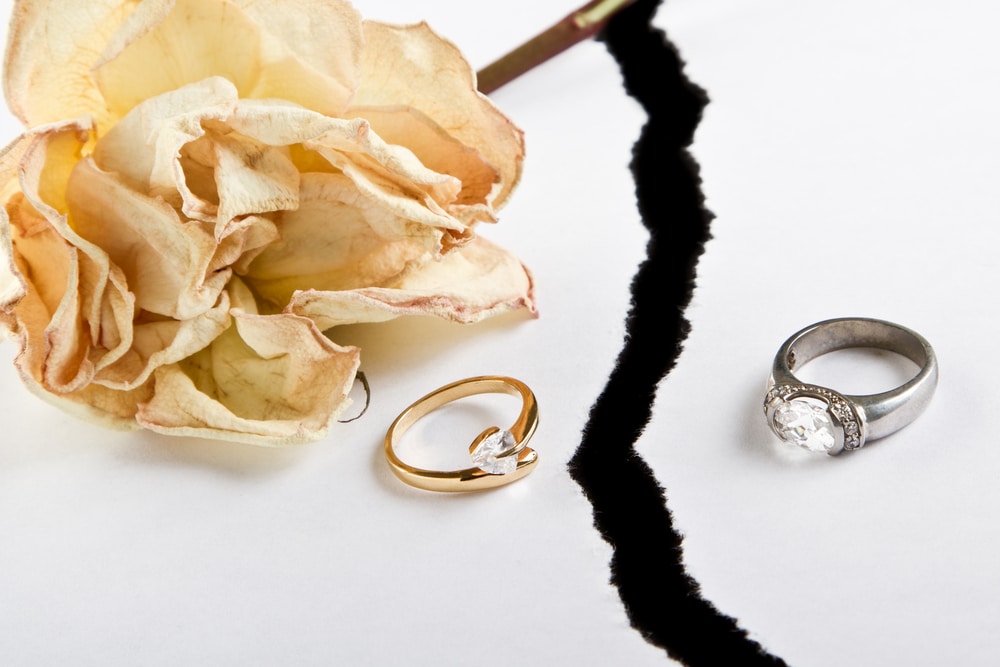Experienced Attorneys Guiding You through the Process of Divorcing a Deceased Spouse in Monmouth and Ocean County, NJ
If one spouse dies before the divorce papers have been signed in New Jersey, the Court will explore and determine the steps to follow in each individual case
 Divorcing is never pleasant, even in the best of circumstances. What seems simple, splitting assets and debts, is never quite that simple. And, in reality, many divorces can be complex, especially when the divorce involves children and businesses. In addition, the law can be complicated, and outcomes depend on family situations, which vary from person to person. And yet, when one spouse dies after the divorce begins, but before it ends, the situation becomes even trickier. So, when divorcing parties agree to a fair division of the assets and debts but do not finalize their agreement with signatures and court approval in New Jersey, the surviving spouse could find a completely different outcome to their divorce.
Divorcing is never pleasant, even in the best of circumstances. What seems simple, splitting assets and debts, is never quite that simple. And, in reality, many divorces can be complex, especially when the divorce involves children and businesses. In addition, the law can be complicated, and outcomes depend on family situations, which vary from person to person. And yet, when one spouse dies after the divorce begins, but before it ends, the situation becomes even trickier. So, when divorcing parties agree to a fair division of the assets and debts but do not finalize their agreement with signatures and court approval in New Jersey, the surviving spouse could find a completely different outcome to their divorce.
What can we learn from Acosta-Santana v. Santana?
Such was the case in Acosta-Santana v. Santana. The husband, in that case, died before the divorce concluded. Before his death, the parties had agreed on distributing their assets and debts in a written agreement. However, since they did not sign the agreement and the divorce was not over, the husband’s will determined where his assets went. And while the husband changed his will, removing his wife as executor and making his children the beneficiaries of his estate, he did not change beneficiary designations on insurance policies, the house, and other assets. The husband’s estate tried to intervene or step into the divorce, but the wife objected and filed a motion with the court. The trial court did not allow the estate to intervene, and the appellate court agreed and confirmed the trial court’s decision.
What Role Does a Will Play in These Types of Cases in NJ?
In other words, when a spouse dies during a divorce, the probate court passes the decedent’s assets according to their will or intestate succession. The representative of the husband’s state cannot step into the decedent’s shoes in the divorce (New Jersey Court Rule 4:34-1(b)). The probate court distributes the estate first. So, in Acosta, the sole beneficiary of most of the husband’s assets received far more than she would have in the divorce. Had the husband removed the wife as the beneficiary on marital property assets, she would not have inherited those assets, but he may have violated family law in diverting assets before a divorce is final. And before Acosta, in Carr v. Carr, the New Jersey Supreme Court had already decided that the divorce case ends when a spouse dies during the proceedings.
If Children are Involved, What Happens with Their Custody?
Thus, once the divorce is over when one spouse dies, the family law that entitles the spouses to an equitable distribution of the assets and debts no longer applies. The surviving spouse may get the assets, but that depends on the deceased spouse’s will. Marital debts become the surviving spouse’s obligation and any child custody arrangements and support also end with the divorce. The surviving spouse has sole custody unless they are unfit to parent the children. In that case, the court may give custody of the children to relatives or the court may consider the guardian designated in the deceased’s will. In other words, custody may be a contested hearing.
In addition, the probate laws applicable to married people do not apply in certain divorce circumstances either. Thus, ordinarily, if one spouse died while married, the surviving spouse can take their share by legal right. So, if one spouse tries to disinherit the other by taking them out of their will, the slighted spouse can still inherit one-third of the estate. But that is only if the spouses were living together as a married couple and not divorced or separated, living in separate residences or the same residence but under conditions that would constitute divorce. That means a divorce proceeding terminates a spouse’s elective share from their spouse’s estate.
What Can We Learn From Carr v. Carr?

However, out of fairness, the court recognized that spouses in a marriage acquire and maintain assets jointly and that the death of one spouse does not change the character of the property as together acquired and maintained. As such, the Supreme Court introduced the equitable remedy of a constructive trust, which made the wife a trustee of the property she owned in title but stood to lose in the probate court. In fairness and good faith, the court sought to prevent unjust enrichment to the children of a prior marriage who would not have inherited the property but for the death of their father during a divorce proceeding. Thus, the court deemed the wife a constructive trustee of the property and, therefore, the rightful owner. A constructive trust forces the unjustly enriched party to transfer property to the one who is the intended beneficiary or owner.
Book a Consultation with our Brick, NJ Divorce Lawyers at Bronzino Law Firm
As difficult as divorce and death are, you are going to need the help of a highly experienced family law attorney to help you sort out what is yours when your spouse dies before the divorce is final. And if your estranged spouse’s will excludes you from receiving what is rightfully yours, you will need an attorney to fight for what is fair. That may include bringing the appropriate motions, and, if necessary, arguing your case on appeal and possibly to the Supreme Court.
You should not be left in limbo due to circumstances beyond your control, like your spouse’s demise during the divorce. Again, count on the legal advice and advocacy of a first-rate family law attorney by contacting Bronzino Law Firm, LLC for a free consultation. We assist clients facing legal hurdles when death and divorce collide in Mantoloking, Lavallette, Jackson, Freehold, Ocean Township, Toms River, Holmdel, Sea Girt, and throughout Ocean and Monmouth County. If you would like a free consultation with one of our lawyers, you can call us at (732) 812-3102 or contact us through our online contact form.







